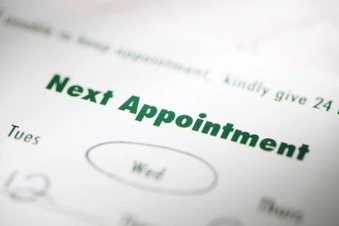Managing Emotional and Mental Health Challenges of MG

Know the Signs
Depression and anxiety are common in people who live with MG. The first step toward getting help with your mental health is recognizing you’re not in a good place. Depression can make you feel hopeless, “empty,” and sad a lot of the time, or numb to emotion. Anxiety makes you feel on edge, wound up, and worried.

Physical Signs of Mental Issues
You don’t only feel depression and anxiety through emotion. Your body feels it, too. You may have a racing heart, trouble concentrating, fatigue, muscle aches and pains, or sleep problems. You may also lose weight without trying or have trouble with your digestion.

Start With Good MG Control
The type of treatment you need for your MG will depend on your age, how severe your disease is, and how fast it’s progressing. But if your symptoms feel out of control or severe, it can add to feelings of anxiety and depression. Talk to your doctor to be sure you’re addressing your disease as best you can.

Why Mental Challenges Happen With MG
Studies show that not only do the symptoms of MG itself cause mental health issues, but the burden of multiple doctor appointments, along with stressful treatments, do too. When having MG affects your quality of life, depression and anxiety are likely to follow.

Seek Out Support
Many people find strength and comfort through connections with others living with MG. Not only is there relief in not having to explain your disease, but you can also give and receive advice and support about life with MG.

Use Professional Mental Help
You see a doctor for MG treatment. Mental health professionals can work with you to treat the emotional aspects of your disease. Whether you see a psychiatrist, psychologist, trained counselor, or social worker, you’ll gain insight into your mental state and learn tools for managing it.

Types of Counseling
Psychotherapy, also called talk therapy, is a common method of counseling that helps you pinpoint your issues and find ways to manage them. Another type of therapy called cognitive behavioral therapy (CBT) can help lessen the effects of anxiety by gently retraining your brain toward new patterns of thinking over time.

Confide In Family and Friends
It’s completely up to you whether to share about your MG diagnosis and challenges with others. You may find that telling a few trusted people can relieve some stress and anxiety. Having someone who knows what you’re going through can help you feel like you have a partner and advocate in unknown situations.

Advocate for Yourself
Explaining your MG to strangers can be exhausting and frustrating. If you find yourself in a situation where it’s necessary to tell someone about your disease, have a short few sentences ready in your mind so you can rattle them off without much mental effort. Direct friends toward educational resources to learn more – you don’t have to be their sole education.

Find What Works for You
You may feel stressed about finding a therapist, or uncomfortable about the thought of an MG group. If you try a method and it doesn’t work for you, keep trying. There are many tools available for mental stress relief, from professional help to medication to breathing exercises to group support and more. Find the combination that works for you.
Show Sources
IMAGES PROVIDED BY:
1) iStock/Getty Images
2) iStock/Getty Images
3) DigitalVision/Getty Images
4) E+/Getty Images
5) E+/Getty Images
6) iStock/Getty Images
7) Moment/Getty Images
8) DigitalVision/Getty Images
9) E+/Getty Images
10) DigitalVision/Getty Images
SOURCES:
Brain and Behavior: “Prevalence of depression and anxiety among myasthenia gravis (MG) patients: A systematic review and meta-analysis.”
National Institute of Mental Health: “Depression,” “Anxiety Disorders,” “Psychotherapies."
Mayo Clinic: “Myasthenia Gravis.”
Scientific Reports: “Mental health in myasthenia gravis patients and its impact on caregiver burden.”
Myasthenia Gravis Foundation: “Find MG Support Groups,” “Talking About MG.”
